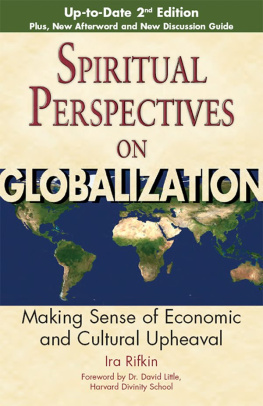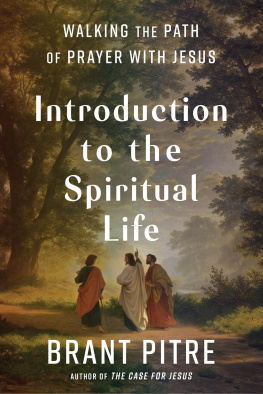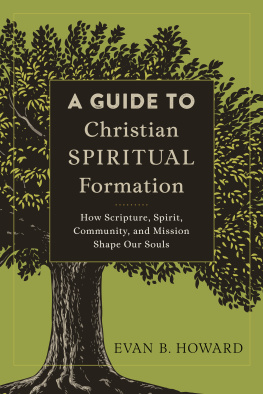About this Book
With this new book, James Cutsinger shows he is an authority and teacher of the first rank on the work of Schuon. Professor Cutsinger has a kind of genius for organization, for discovering an ordering principle in the authors work and using that principle to guide his own decisions. His editorial hand in the choice of texts and the notes is sure and unobtrusive, letting the master speak for himself while opening pathways of understanding for readers of all levels.
Vincent Rossi, Director of Education for the Jerusalem Patriarchate of the Orthodox Church
In this remarkable book Schuon, attentive doctor of the soul, exposes the souls sophisms and denounces its weaknesses while honoring all the modalities of the inner life, from the simplest to the most vibrant, from personal prayer to the most elevated form of quintessential orison.
Patricia Reynaud, Miami University
In the words of Marco Pallis, any religion is doomed to more or less rapid disintegration [without] the dimension of spiritual, intellectual, and physical integration [that is so well articulated in] Prayer Fashions Man.
Brian Keeble, author of Art: For Whom and For What?
This new collection makes Schuons work more accessible than ever, which is a great boon to those prepared to contemplate religion in universal terms. Here Schuon the metaphysician speaks as a spiritual master, placing the focus on the essential method of the spiritual lifeprayer. His exposition of the dimensions and depths of prayer is traditional in the strictest sense, yet by no means confined to archaic forms. New readers will discover what experienced ones already have: that to read Schuon is not only to understand prayer anew, but to be drawn into it.
Carl N. Still, St. Thomas More College
This extraordinary book is sui generis. Lean, lucid and graceful in style, Prayer Fashions Man offers profound and pivotal views the likes of which have not appeared in the western world since the times of Meister Eckhart and Dante Alighieri.
Prayer Fashions Man is proof that Heaven has not left itself without witness even in these terminal dregs of time.
Alvin Moore, Jr. co-editor of The Selected Letters of AnandaCoomaraswamy
APPENDIX
A Sampling of Letters and
Other Previously Unpublished Materials
1
The first thing necessary is a sense of the essential, or a sense of truth; and likewise a sense of the sacred; then a sense of nobility; then a sense of beauty; and finally a sense of greatness.
These are the tendencies that constitute qualification for the spiritual life and the supreme Path.
Do not get lost then in the insignificant, and do not forget the essential truths; do not feel at ease in profaneness or worldliness or in what is lacking in nobility; tolerate no ugliness, either in your ambience or in your soul; and avoid all pettiness.
Then you may knock, and it shall be opened unto you.
2
I am glad to learn you have finally found a life setting that suits your aspirations, that is, a setting arranged in view of the one thing needful. Easy solutionssince you bring up this moral problem and this typically modern way of looking at thingsare always legitimate if God is the aim, for my yoke is easy, and my burden is light; worldly people make a cult out of difficulty, which is merely a formand a fairly hypocritical form at thatof individualism; it is to forget that greatness comes from God and not from man. The greatness of the divine qualities reveals itself in the one who opens himself to them, if one may express oneself thus.
In the spiritual life, difficulties often reside in apparently simple things; victory belongs to him who, in secret, knows how to persevere in little things. To think of God, to empty oneself for Him, to escape from that habitual dream in which the ego mirrors and repeats itselfthis seems easy a priori; what could be simpler than to repeat an ejaculatory prayer? But to do this always, to renounce anew our dream, to acquire the habit of keeping ourselves in Gods presence, thus to go against the congenital tendencies of our soultendencies toward dissipation as well as lazinessthis is a great thing, the dimensions of which cannot be measured from outside. If you read the lives of saints, you will see that they were great above all through simple but consequential attitudes; the more visible glories were somehow superimposed upon these.
Worldly people like to appease their conscience by musing about sublime realities, as if by thinking about them they participated in them; it is of course good to think about them, and one cannot help doing so; however, it is important not to let this habit take the place of real virtues. One must dedicate oneself to a discipline that is not above our strengththat may even appear to be beneath itbut one must dedicate oneself to it totally. And one will then see, over time, that it is above our strength, but that everything is possible with Gods help; nothing is possible without it. There are things which are little in themselves but which, when practiced with perseverance, lead to great things; this is what is forgotten by those who constantly bring up the reproach of easiness.
People often speak to me of concentration and complain they are lacking in it; this is above all a lack of imagination, for he who knows that God is infinitely lovable and that there is nothing to fear outside of Him has little difficulty in maintaining himself in a certain state of recollectedness. A man sentenced to death has no trouble remembering death, and likewise a man parched with thirst effortlessly remembers water; it is not difficult for a young man to think about his betrothed. So should every man think of God; if he does not do so, it is because he lacks imagination. And this is the great surprise of death: the soul, once it is wrested out of the body and this earthly world, is confronted with God, and it sees the fulgurating and infinite Essence of all that it lovedor could have lovedon earth. In a word, to concentrate on God is to know right now that all we love, and all we could love, is to be found infinitely in God, and that all we love here below we love, though without being aware of it, only because of God. We attach ourselves to the fleeting reverberations on water as if the water were luminous; but at death we see the sun with immense regretunless we became aware of the sun in time.
I claim no merit in being able to speak in this way, for God forced matters, if I may say so, by placing me in a destiny that made me appreciate very early my helplessness and the marvels of His grace.
3
Many questions arise simply because man lets himself be enticed into the domain where questions lie instead of keep ing firmly to the domain of certainty. If a man is confused by something, he should first of all come back to the certainty that it is not this world as such which is important, but the next world, and above all that l ilha ill Llh; and he should say to himself: in the face of this truth, which in principle is the solution to all questions, this or that question just does not arise; it is enough if he has the Answer of answers. And then God will give him a light also for what is earthly and particular.
4
What God asks of us in the first placefor this concerns all menis to save our souls; whether this salvation is tied to metaphysical knowledge and esoteric practices is quite another question. And here man has three possibilities: either he has no inner relation with ultimate truth, understands nothing of the wisdom of God, and does not wish to know anything about it; or he understands and loves this wisdom to some degree, but for some reason cannot follow a corresponding Path; orand this is the third possibilityhe understands and loves wisdom and can seek to realize it methodically.










